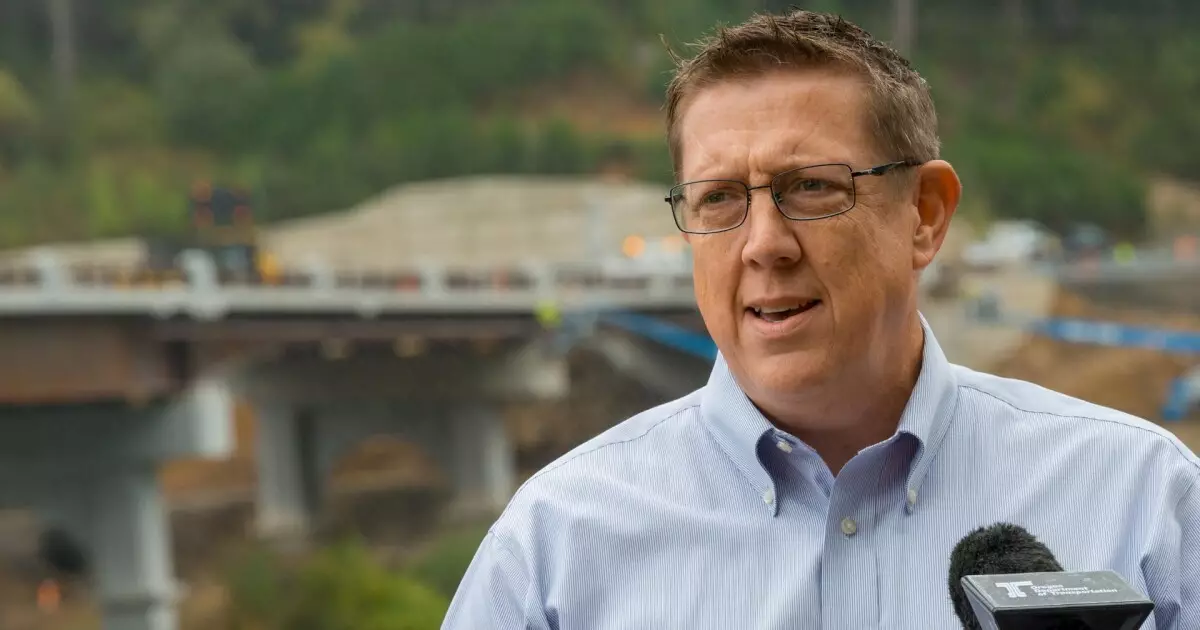The recent collapse of Oregon’s legislative effort to pass a vital transportation funding package represents not merely political gridlock but a profound failure of leadership and priorities. When a state’s infrastructure and the livelihoods dependent upon it are left dangling in limbo due to partisan disagreements, it reflects a tragic neglect of duty. The potential layoffs of up to 700 Oregon Department of Transportation (ODOT) workers expose how political posturing can come at the expense of public service. The political class in Salem, instead of channeling their collective dedication into fixing a pressing financial gap, chose to retreat, leaving essential services in the crossfire of partisan disputes.
The grim warning signs had been clear for years—declining revenue streams, flatlining gas taxes, inflation, and legal constraints all pointing toward a looming crisis. Yet, despite these clear indicators, legislative leaders failed to craft a comprehensive, bipartisan solution. This neglect demonstrates a fundamental disregard for pragmatic policy, economic realities, and the well-being of everyday Oregonians who rely on safe roads, reliable maintenance, and efficient transport systems.
The Human and Economic Toll
The immediate consequence of legislative inaction is the imminent layoffs. ODOT’s director, Kris Strickler, candidly described the situation as shocking and frustrating—a sign that even the agency leadership recognizes the gravity of the political failure. It’s more than just a number; it’s hundreds of livelihoods at stake, many of whom have dedicated years of service ensuring Oregon’s infrastructure remains functional. The ripple effect extends beyond individual employees: contractors, local businesses, and communities dependent on transportation networks will all bear the brunt of this shortsightedness.
Crucially, the repercussions transcend economics and jobs. Maintenance delays and reduced staffing inevitably threaten public safety. Roads and bridges, neglected due to budget cuts, increase the risks of accidents and infrastructure failures. Roads are the arteries of every community—without maintenance, they deteriorate, leading to higher long-term costs and diminished quality of life. This scenario embodies a fundamental policy failure where short-term political calculations have overridden the long-term interests of Oregon’s residents.
Structural Failures Reflect Political Apathy
The stark reality is that Oregon’s governance has allowed systemic issues to fester, culminating in this current crisis. The dependency on the State Highway Fund—primarily fueled by gas taxes, DMV fees, and trucking taxes—places a fragile economic bandage on a gaping wound. When revenue streams stagnate or decline, politicians often respond by delaying tough decisions rather than confronting the structural issues head-on.
The situation is made worse by the legislative deadlock over House Bill 2025, a $14.6 billion transportation package that would have stabilized funding for years to come. The failure to secure the supermajority required reveals a lamentable inability for bipartisan cooperation. It’s a reflection of political polarization that dismisses urgent infrastructure needs as mere bargaining chips or partisan leverage. The result? An entire state’s infrastructure hangs in the balance, vulnerable to further deterioration and economic stagnation.
The governor’s consideration of a special session underscores recognition of the crisis’s severity, yet the lack of decisive action in the recent legislative period signals a troubling disconnection from the urgency of the matter. Politicians seem more concerned with electoral calculus than with the unglamorous but vital task of maintaining Oregon’s transportation backbone.
Responsibility and Leadership in Question
This crisis spotlights a profound failure of leadership—not only from lawmakers but also from those entrusted with stewarding Oregon’s future. The absence of a unified, pragmatic response illustrates a broader trend of political complacency. Leaders have prioritized partisan battles over stewardship, leaving behind practical solutions that could sustain the state’s infrastructure and economy.
The situation also exposes the limitations of relying solely on volatile revenue sources like gas taxes. Policymakers must accept that such funding mechanisms are outdated and insufficient for modern needs. A serious, innovative approach—whether through diversified funding sources, targeted reforms, or policy adjustments—was left unpursued. Instead, the state’s leadership opted for a default position of neglect, choosing to gamble with the public’s safety and economic stability rather than confront uncomfortable truths and craft sustainable solutions.
This approach is emblematic of a broader ideological issue: a reluctance to implement necessary reforms that challenge entrenched interests or disrupt status quo revenue models. It’s a shortsighted mindset that prioritizes immediate political comfort over long-term resilience.
The Reckoning for Oregon’s Political Class
The current crisis should serve as a wake-up call. Oregon’s leaders cannot afford to continue sidestepping hard decisions, nor can they afford to reduce vital agencies like ODOT to a mere pawns in political games. Infrastructure is inherently a center-left and center-right issue—one that transcends partisanship when framed properly. It’s about securing the future, safeguarding assets, and supporting workers who keep our roads safe and reliable.
The failure to act, highlighted by the threat of massive layoffs, exposes the fragility of Oregon’s political culture. It demonstrates an urgent need for pragmatic, centrist policies that recognize infrastructure as an investment, not just a line item. Future leadership must transcend partisan gridlock and focus on bipartisan solutions that prioritize the practical needs of the state and its citizens. If not, Oregon risks falling further behind, losing the trust of its workforce, and ceding ground to states that understand the importance of strategic infrastructure investment.

